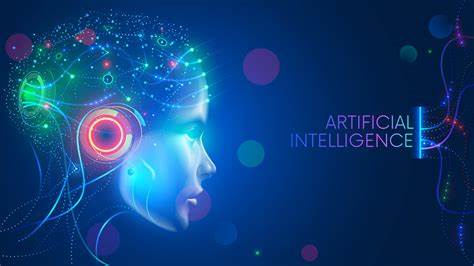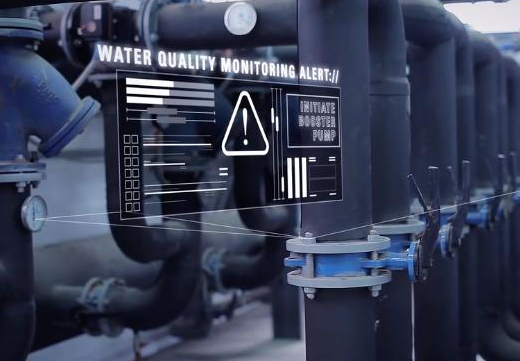
Introduction
Artificial Intelligence (AI) and the Internet of Things (IoT) are emerging technologies that have the potential to revolutionize various industries, including wastewater treatment. This article explores the importance and relevance of AI and IoT in wastewater treatment processes, discussing the potential benefits and advancements they can bring.
Historical Background
The application of AI and IoT in wastewater treatment is a recent development that has achieved significant advancements and milestones. These advancements include the use of AI algorithms for data analysis and predictive modeling, as well as the integration of IoT devices for real-time monitoring and control of wastewater treatment systems.
Key Concepts and Definitions
AI is a branch of computer science that focuses on the development of intelligent machines capable of performing tasks that typically require human intelligence. In the context of wastewater treatment, AI can optimize processes through data analysis and predictive modeling, leading to improved energy efficiency, cost reduction, and enhanced system performance.
The IoT refers to the network of physical devices, vehicles, and other objects embedded with sensors, software, and connectivity. In wastewater treatment, IoT plays a crucial role in connecting devices and systems, enabling real-time monitoring and control, and facilitating data-driven decision-making.
Main Discussion Points
Integration of AI in Wastewater Treatment
AI can optimize wastewater treatment processes by analyzing large amounts of data and creating predictive models. This enables operators to make informed decisions and take proactive measures to improve system efficiency. For example, AI algorithms can analyze sensor data to predict equipment failures or optimize chemical dosing for better treatment performance.
Moreover, AI has the potential to improve energy efficiency in wastewater treatment. By analyzing data from various sensors and incorporating weather forecasts, AI algorithms can optimize energy usage, leading to significant cost savings and reduced environmental impact.

IoT in Wastewater Treatment
IoT enables real-time monitoring and control of wastewater treatment systems, allowing operators to detect and address equipment failures promptly. By continuously monitoring parameters such as flow rate, pH levels, and dissolved oxygen, IoT devices can identify anomalies and trigger alarms, ensuring that necessary actions are taken.
Additionally, IoT facilitates resource optimization in wastewater treatment. By collecting and analyzing data from various sensors, operators can optimize chemical dosing, reduce water usage, and minimize energy consumption. IoT also helps in ensuring regulatory compliance by providing real-time data on effluent quality and enabling immediate corrective actions.
Synergistic Effects of AI and IoT
The integration of AI and IoT in wastewater treatment can result in synergistic effects, enhancing process efficiency and effectiveness. AI algorithms can analyze the data generated by IoT devices in real-time, enabling autonomous decision-making for process optimization.
For example, AI algorithms can analyze real-time sensor data and make adjustments to treatment parameters, optimizing system performance. This integration also enables the development of predictive maintenance strategies, where AI algorithms analyze IoT-generated data to predict equipment failures and schedule preventive maintenance, reducing downtime and improving overall system reliability.
Case Studies or Examples
Real-world case studies provide valuable insights into the application of AI and IoT in wastewater treatment. These case studies demonstrate the challenges faced, outcomes achieved, and key learnings for the industry as a whole.
For instance, a wastewater treatment plant in [Case Study Location] implemented AI algorithms to optimize the treatment process. By analyzing historical and real-time data, the AI system optimized chemical dosing, resulting in improved effluent quality and significant cost savings. The plant also integrated IoT devices for real-time monitoring of critical parameters, ensuring timely interventions and regulatory compliance.
Current Trends or Developments
The field of AI and IoT in wastewater treatment is continuously evolving, with new trends and developments emerging. Recent research findings and technological advancements have the potential to revolutionize the industry.
For example, researchers are exploring the use of machine learning algorithms to enhance predictive modeling in wastewater treatment. By training AI models on large datasets, these algorithms can improve the accuracy of predictions, leading to better decision-making and optimized system performance.
Challenges or Controversies
The implementation of AI and IoT in wastewater treatment is not without challenges. One of the major challenges is the integration of legacy systems with new technologies. Many wastewater treatment plants still rely on outdated infrastructure, making it difficult to adopt AI and IoT seamlessly.
Moreover, the collection and use of data in wastewater treatment systems raise potential ethical considerations and privacy issues. Proper data governance and privacy protection measures must be put in place to ensure the responsible and secure use of data.
Future Outlook
The future implications of AI and IoT in wastewater treatment are promising. These technologies have the potential to contribute to sustainable and efficient wastewater management practices.
Advancements such as the integration of AI and IoT with smart sensors and actuators can further enhance system performance. Additionally, the use of AI-driven optimization algorithms can lead to continuous improvement in energy efficiency, resource usage, and overall treatment effectiveness.
Conclusion
In conclusion, AI and IoT hold immense potential in transforming wastewater treatment processes. By integrating AI algorithms and IoT devices, operators can optimize processes, improve energy efficiency, reduce costs, and enhance overall system performance. Real-world case studies provide evidence of the positive impacts of these technologies. It is crucial for the industry to stay updated with the latest trends and developments in this field to unlock the full potential of AI and IoT in wastewater treatment.